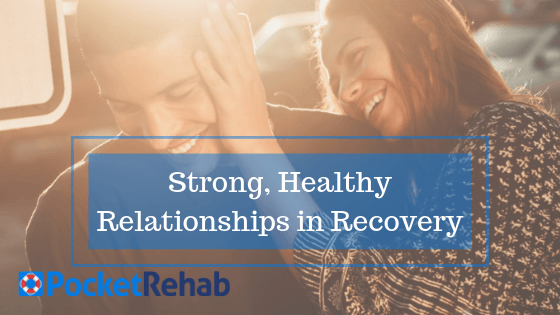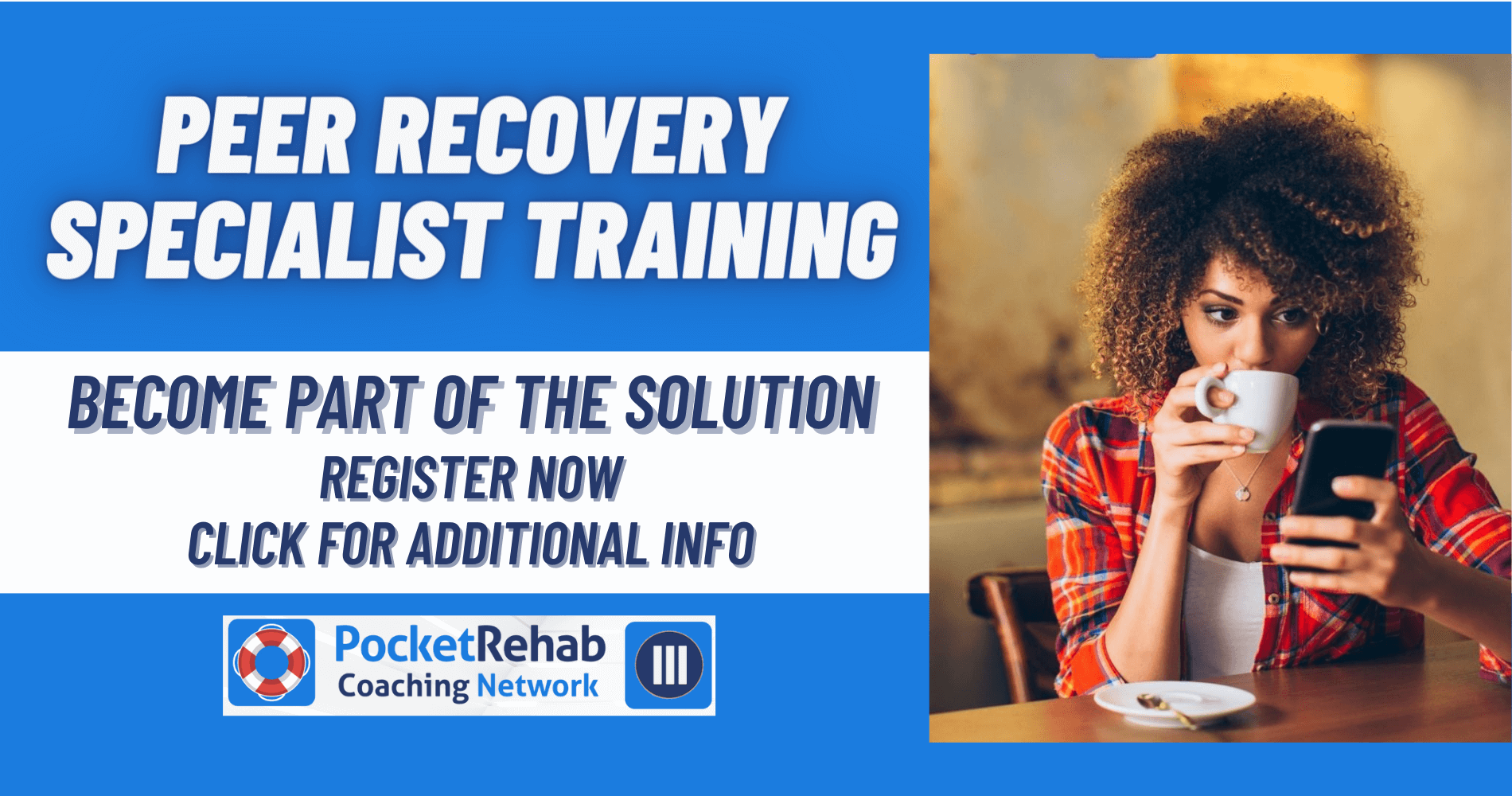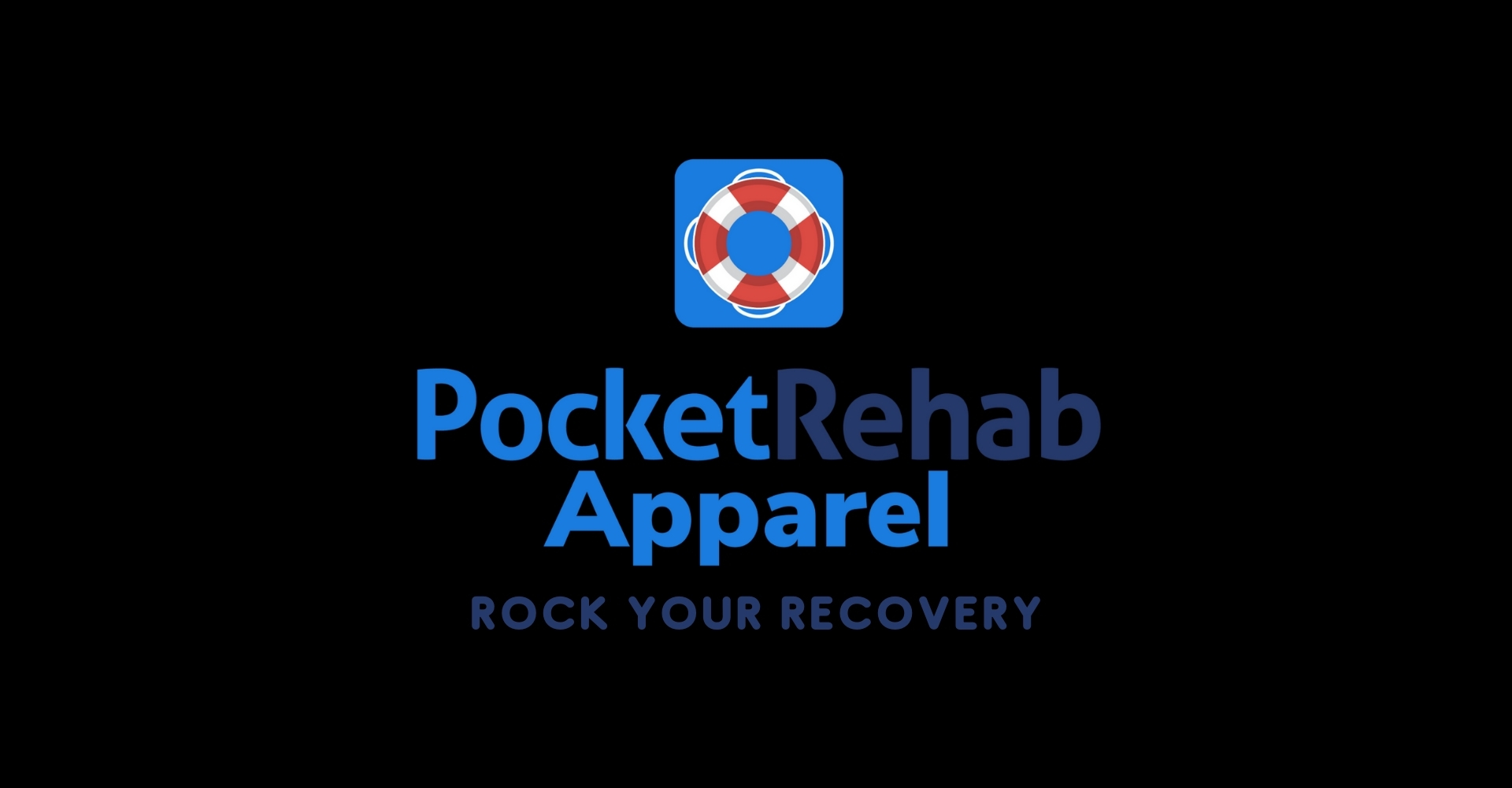Developing Healthy Relationships in Recovery

A healthy start in recovery can make a world of difference in how long you remain on the sober path. Health relationships are central to the healing process but they don’t always come off as healthy following months or years of addiction following behind. Often times, we must work hard towards building strong, healthy relationships in recovery because those we had prior and during our addiction were so unhealthy in nature.
Healthy relationships are the exact opposite of what you are likely used to from your addiction days. In fact, unhealthy relationships are often at the root of our addictions. Addiction maintains a life of secrecy and fear. Such attitudes do not fare well with a relationship—hiding things and not being truthful with oneself or others are not conducive to healthy behaviors. But, you can have healthy relations in recovery!
Apps like Pocket Rehab allow you to connect with others that are also in recovery and share your goals, make new friends and generally embark on new, healthy relationships. But what does a healthy relationship look like? How can you be sure you are not going to fall back into old habits or ways? What steps can you take to avoid unhealthy relationships in your recovery?
Difference Between Healthy & Unhealthy Relationships
The contrasts between healthy and unhealthy relationships are generally easy to recognize but only if you are honest with yourself and with others. Below is a look at some of the differences between unhealthy relationships and healthy relationships:
-
Healthy relationships are based on reality, not fantasy. If you build your relationship on the reality that you are both unique and have your own strengths and weaknesses, you will be working toward a healthy common ground.
-
Healthy relationships complete one another. You feel job in completing the next person, and they feel equal job in their ability to complete you. You are not looking for someone to complete you—you don’t NEED someone to complete you—but they do.
-
Unhealthy relationships are not based on friendship but on victimization. You act the victim and the individual comes running—not healthy! Friendship is a true and welcomed feeling in a healthy relationship, there are no victims in a healthy bond.
-
Healthy relationships sacrifice for the good of all involved. Unhealthy relationships demand that you sacrifice for the good of one person. This is not the same!
-
Unhealthy relationships are characterized by resentment. Healthy relationships are backed by forgiveness. You forgive each other for the wrong-doings and move on. There are no grudges held and there is not deep resentment.
-
Unhealthy relationships are backed by fear which is not good. Healthy relationships are characterized by security. You feel whole, happy and content with your loved one. There is no fear of them leaving or mistreating you or otherwise making you feel unloved.
-
Healthy relationships are marked by vulnerability not defensiveness. If you feel defensive and as if you must protect yourself, you are not in a healthy relationship. You should feel vulnerable, but yet safe to allow your vulnerabilities be accepted by the other half.
-
As stated initially, healthy relationships are honest. If you are acting deceptive or you feel deceived in your relationship, it is not healthy!
How Can I Keep My Relationships Healthy in Recovery
In early recovery, you may worry about how you can remain healthy with new relationships as you are just embarking on something new. Maybe you only recently learned what a healthy relationship looks like. Or perhaps you have known for some time what it means to have a healthy relationship but this is a first for you still as you are ready to practice the new skills that you learned in recovery.
Keeping your relationships safe and healthy in recovery is vital because unhealthy relationships can lead to unhealthy habits and behaviors. You don’t want to be dragged down by others and risk relapse. Likewise, you want to be involved and to have healthy interactions with your peers. But how?
Below are some tips to keep your relationships healthy in recovery:
-
Keep recovery at the forefront of your mind. If you find yourself in a relationship with someone that does not respect your boundaries and is using drugs or alcohol around you—walk away.
-
Take it slow. Relationships, both before, during and after recovery, should be taken slowly to assure you have time to adjust. If the ultimate goal is intimacy, the bond that you share early on and leading up to that goal will make a world of difference in the connection that the two of you have.
-
Keep expectations real, and healthy. New relationships can end abruptly. Don’t let unhealthy expectations, like thinking you will spend the rest of your life with the girl you just met, ruin your recovery. Remain positive, and optimistic, while also REAL about your expectations. Remember the previous tip—take it slow!
-
Know your limits. If the stress of a relationship is too much for you to bare, or if you’re feeling like there is more negative than there is positive coming out of the relationship, walk away. You must maintain your boundaries and recognize your limit as to how much stress you can, and cannot deal with…don’t let it go as far as risking your recovery.
-
Don’t become dependent on the new person. You worked so hard in recovery to no longer count on substances to guide your way. You learned WHO you are and WHAT You want in life. Don’t let a new person in your life take away your sense of YOU. Forming a dependency on someone you care for is just as dangerous as forming a new addiction—take it slow.
Building Old Relationships Into Healthy Relationships
What about when you encounter someone you knew from the past that maybe was hurt by your addiction? How can you build a healthy bond with members of your past?
Begin by being honest. Both with the individual and with yourself. Let them know that you are sorry for the things you did in active addiction, but that you are in active recovery now—and that you are working hard toward building healthy relationships. If they can’t accept this, move on!
Establish healthy boundaries for those that you let into your life. If friends or family members pressure you to engage in activities that may tempt you to relapse, let them know that this is NOT okay and that you will have to avoid spending time with them if such activities continue to be brought up. You should be able to say no without feeling selfish or upset about it—your family and friends should support you!
If a relationship from the past is just not healthy, and you have done what you can to have healthy interactions with the friend or family member to no avail. You must know your limit and know when to walk away. Some relationships are simply not worth the risk that they have on your sobriety.
Building Healthy Relationships Online
Apps like Pocket Rehab allow you to build relationships with others in recovery which is a great opportunity for many. You can reach out for support from like-minded individuals here and also receive support from others that are working toward the same common goal. However, much like face-to-face relationships, online relationships must be built in a safe and healthy manner. Below are some tips for building healthy relationships online:
-
Remain honest with yourself and with others. Keep your expectations clear and don’t be unrealistic. You’re meeting someone online, so you must remain aware of the fact that anything could happen.
-
Be supportive and you will get support. When you’re working with people in a group, one thing to remember is that you can expect what you give. So if you are kind and courteous to others, you can generally expect a similar response—remember to be realistic too—not everyone will be kind. It’s an unfortunate side effect of our society.
-
Establish clear boundaries and respect the boundaries of others. You may feel like you can say or do anything because you are operating behind a pseudonym, but don’t forget your boundaries. Be respectful both to yourself and to those on the app.
-
Avoid putting all your effort into a single friendship. Much like in person it is not conducive to spend all your time on a single relationship, the same holds true online. It is important that you don’t create a new dependency that could place you at risk for additional problems.
Interact, share and get involved. But do so safely. Respect your newfound recovery and build healthy, positive relationships along the way!
Developing Healthy Relationships in Recovery
Tags: relationships, boundaries, recovery, addiction recovery, support, rehab app, sobriety app





